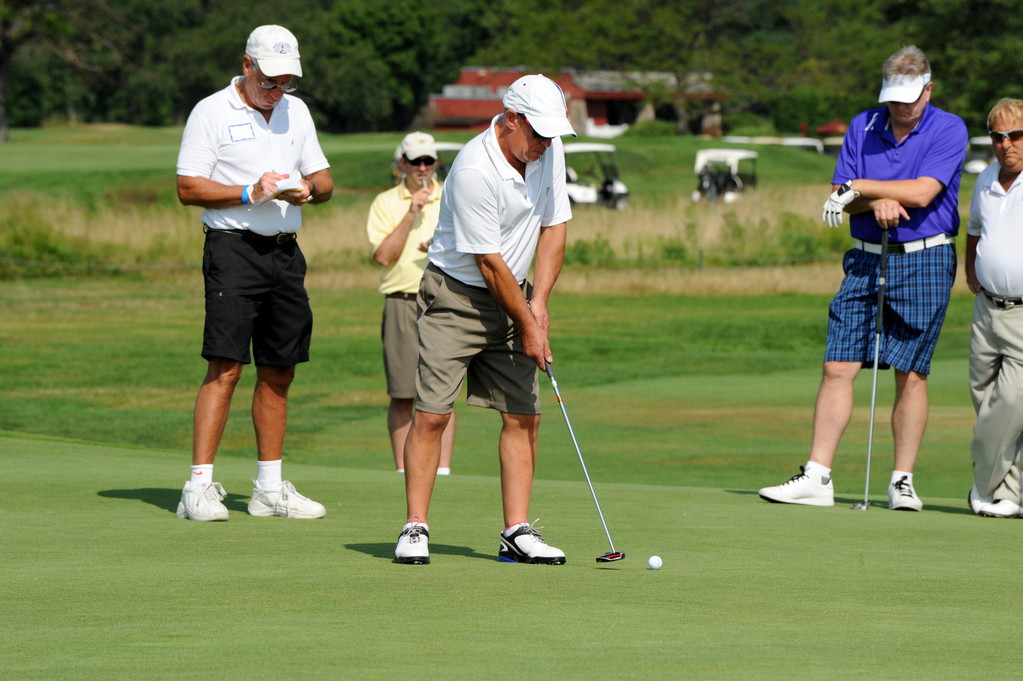Oceanside country club hosts blind golf tournament
Ted Fass’s first swing at the seventh hole sent the ball sailing down the middle of the fairway on a picturesque Monday morning. After a couple of practice swings, his follow-up shot put the ball on the green, and a long putt would give him a par for the hole.
The casual observer might not have realized that Fass couldn’t see the results of his shots — or, for that matter, the course. Fass is blind, as were the rest of his 24 competitors at the 67th annual United States Blind Golf Association’s national championship, held at Oceanside’s Middle Bay Country Club Aug. 6 and 7.
Fass’s putt broke just left of the hole, and continued rolling. His next one didn’t fare much better. His short game — chip shots from uneven lies and putts — is his biggest challenge, he said.
David Santucci, Fass’s coach, agreed. “The short game is where I come in most,” Santucci said. “I’m kind of, in a sense, his eyes out there. It’s like a caddie, plus.”
In the USBGA, a coach takes on many of the duties of a caddie, offering advice on each shot and helping the golfer decide which club to use. The coach also tells the competitor how far he or she is from the hole, describes the terrain, positions the club in front of the ball in preparation for the swing — and drives the cart.
Fass said that he counts steps with Santucci as they discuss how long a putt is. “The coaches, they’re an important piece,” Fass said. “The communication is the key. It’s really two people playing when I’m in the green.”
The next hole was equally difficult for Fass, but after his first shot left the ball on an uneven lie, he managed to get back on the fairway with his second effort. “That’s what I was aiming for,” he joked as onlookers offered their compliments.
For the first decade of his life, Fass could see, but when he was 11, a complication in one of many surgeries to remove a tumor from his nasopharynx left him without sight. According to Fass, who is now 60, the hardest part of the adjustment was the response of his friends, many of whom had moved on to the next grade while he was in the hospital.
“In the beginning, nobody wanted to be friendly with a blind person because to hang out with them was a responsibility,” he said. “I made it where it wasn’t any kind of obligation.”






